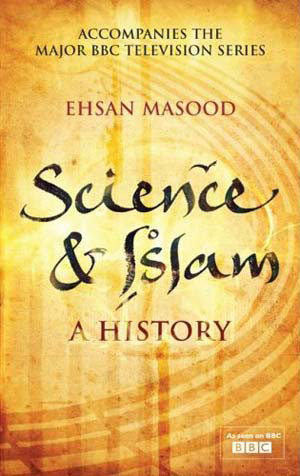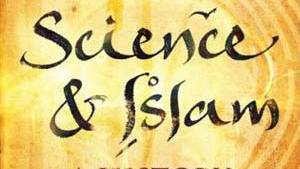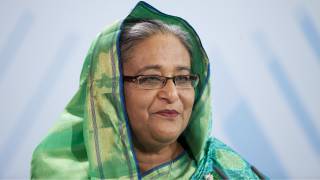Time to acknowledge science's debt to Islam?
Source: newscientist.com
 When Roman civilisation fell in the early centuries AD, the light of scholarship was extinguished. It was close to a thousand years before civilisation recovered, thanks to European scholars who rediscovered classical Greek learning and ushered in the new dawn of the Renaissance.
When Roman civilisation fell in the early centuries AD, the light of scholarship was extinguished. It was close to a thousand years before civilisation recovered, thanks to European scholars who rediscovered classical Greek learning and ushered in the new dawn of the Renaissance.At least, this is how history is taught. Now two books argue that this view ignores the crucial role of Islamic scholars.
In the first part of Science and Islam, a fascinating and clearly written book, Ehsan Masood tells how Islam spread rapidly from the 7th century onward, from the west of China to the south of Spain. As Europe slumbered in the Dark Ages, science-friendly caliphs such as al-Mamun, who ruled Baghdad in the 9th century, sponsored the translation of scientific texts from lands they had conquered.
Among them were the works of scholars such as 8th-century mathematician Musa al-Khwarizmi, who popularised the Indian number system and invented algebra; ibn-Sina (also known as Avicenna), a Persian polymath who realised in the 11th century that diseases can spread through soil and water; and 13th-century astronomer Nasir al-Din al-Tusi, who made improvements to the Greek planetary models that Nicolaus Copernicus later relied on for his heliocentric theory.
While the Islamic world was enjoying astronomy, philosophy and medicine, those in Europe could not tell the hours of the day, thought the Earth was flat, and saw disease as punishment from God, says Jonathan Lyons in The House of Wisdom. That changed after the Crusades, set in motion by Pope Urban II at the end of the 11th century, which resulted in a spectacular growth in trade and communication between east and west. Knowledge that had taken centuries to build was unleashed on an unsuspecting Europe.
The House of Wisdom is a demanding read, with confusing jumps in time. But Lyons vividly conveys the excitement young European scholars travelling east must have felt as they glimpsed a dazzling new world of learning. The influences of Arab culture on the west are pervasive, in imports such as gardens, carpets and chess, and in our scientific vocabulary - from alkali and algebra to zero and zenith. More important than any individual piece of knowledge, though, was the Islamic world's fundamental realisation that science can grant humans power over nature.
Masood and Lyons agree that the Arabs' success was down to their receptivity to new ideas, much of which came directly from their religion. Though not all religious leaders were happy with the scientists' influence, the Prophet Muhammad had encouraged his followers to seek knowledge, "even if you must go all the way to China".
By the late 12th century, though, the Islamic world was increasingly under threat from Christian armies, and Muslim leaders responded with a return to fundamental religious values. The battle between scientists and theologians was ultimately settled in favour of God. But in Europe, the genie was out of the bottle. The rationalist approach bequeathed by the Arabs "changed forever the landscape of Western thought", says Lyons, and led directly to the scientific revolution.
The rationalist approach bequeathed to Europe by the Arabs led directly to the scientific revolution
Both authors have lessons for us today. Throughout the history of the Islamic world, Masood says, science has been associated with either oppressively rationalist rulers or a colonising power, part of the reason for its poor image there now. "If science is to return to the nations of Islam," he writes, "it must do so without interfering in people's freedom to believe."
Lyons advises caution as well. The original crusaders demonised Muslim "infidels" despite little understanding of their beliefs, lives and practices. In the "war on terror", it is a mistake many are repeating today.
Jo Marchant is the author of Decoding the Heavens (William Heinemann, 2008, and Da Capo Press, 2009)
Source: newscientist.com






















